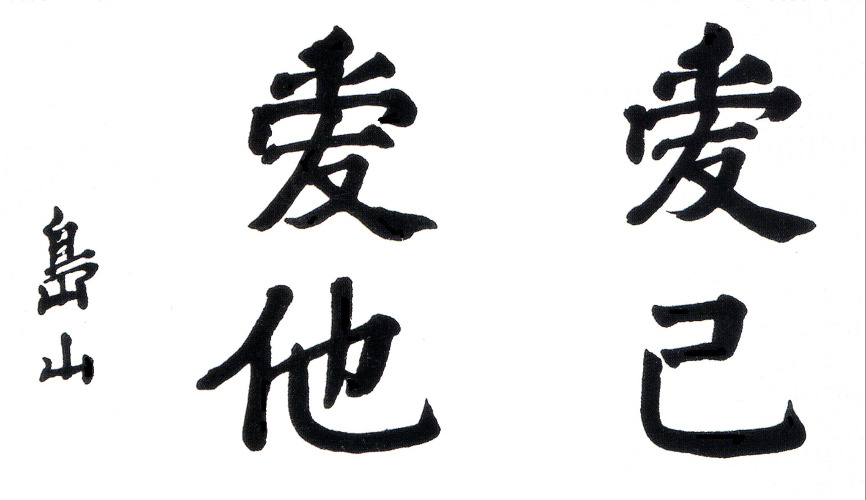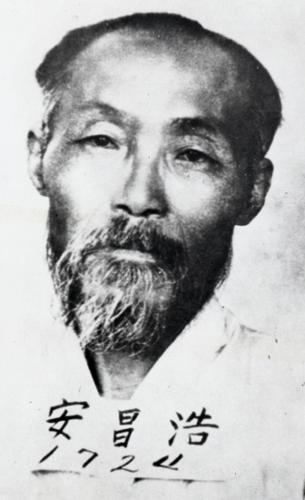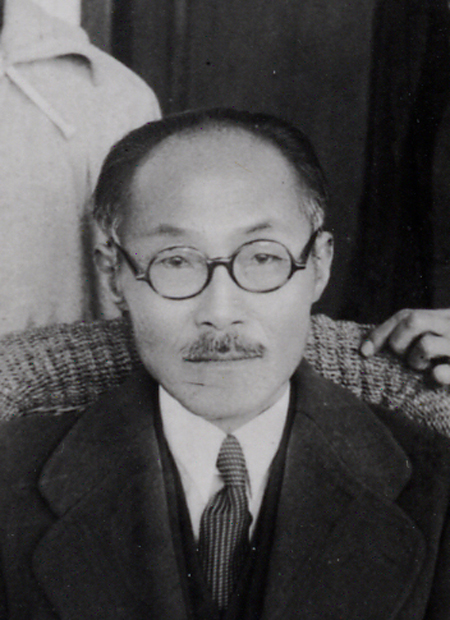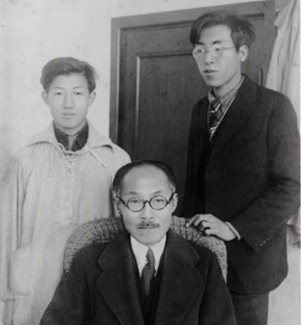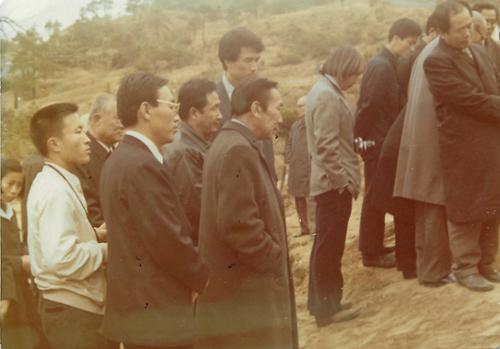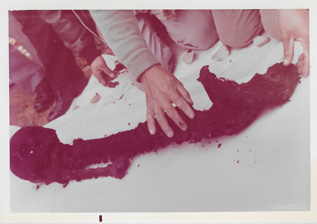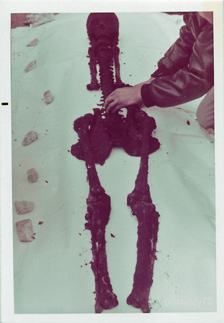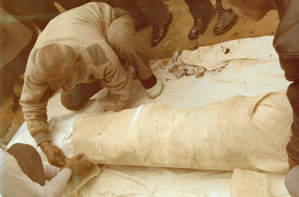March 10th, 1938 is Dosan's Death Day
How Many Times Did the Japanese Police Arrest Dosan? How did he die?

One of Dosan's Sodaemun Prisoner registration cards issued by Japanese Police, He was arrested six times. He spent many torture filled days in Sodaemun Prison.
There are two kinds of pain. The pain that hurts and the pain that alters. Dosan took all the hurt the Japanese inflicted on him. The Japanese never altered his love for Korea and his countrymen.

Dosan arriving to visit friends after four years in Daejon Prison. He spent long difficult years in Daejon after being arrested by Japanese in Shanghai, China in 1932. Dosan was a naturalized Chinese citizen when he was arrested. He was
convicted of The Preservation of Peace Laws in Japanese Court by Japanese officials in Seoul, Korea.

Dosan was arrested in 1937 for the last time. It involved the Suyang Donguhoe Incident. He had been arrested five times before this arrest. He was arrested in 1910 when Ahn Jung Gun shot
Ito Hirobumi. This time he was prisoner number 1724,

This is the last picture of Dosan before being killed by Japanese Police in the hospital. According to a Dr. Won Tai Sohn the Japanese Kempeitai ground up glass and put it in his food to make sure he died this time.
Dosan died March 10, 1938.
An excerpt from a very good book “Pumpkin Flower and Patriotism"
by Kyung Soo Cha (Translated by Hyun H. Kim)
Death of Mr. Ahn Chang Ho
Cha Kyung Shin experienced one of the greatest shocks of her life in the year of 1938. Mr. Ahn Chang Ho died that year in Korea. He was captured by the Japanese police and due to rough treatment in the prison., he became ill and subsequently passed away. The news utterly immobilized Kyung Shin. The Korean organizations in the U.S.A. held memorial services. KPWL held one, too. Kyung Shin used to carry a small notebook in which she wrote her speeches for various occasions. Flipping through the pages, I found a speech under the title of “In Memory of Mr. Ahn.” The smudged ink on the pages indicates how much Kyung Shin cried when she read the message.
In Memory of Mr. Ahn
Despite my insignificance I dare to deliver a memorial speech for the late “Dosan” Ahn Chang Ho. We thought we’d see your dignified, yet kind face and hear your tender voice once again, but suddenly you are no longer with us. We don’t know how to express our sadness in words.
The officials of KPWL head office, all branches offices and all members feel great pain in our hearts.
We honor Mr. Ahn’s lofty spirit. Mr. Ahn loved his country and the people from the very early on in his youth until his death in his sixties. Throughout his life he never desired wealth and personal comfort even though he was always
poor. His mind was always occupied with the love of the nation. He liked a song called “Loving the Nation for a long Long Time” and sang it from time to time. We honor such a noble spirit as his.
Mr. Ahn never treated people differently because of their rank and status. He was always humble and affable to everyone. We honor his generous virtue.
Mr. Ahn valued education. He understood that in order for the citizens to live
as true citizens education was indispensable, and he devoted himself towards the development of education for all Korean people. He endeavored for individual education, school education and group education in order to make them good
people who know how to live manly life. We honor his sublime wisdom.
How hard it must have been physically when he was in prison during the cold winter and the hot summer. How hard it must have been mentally when he had to subject
himself to the enemy’s medical care. As a result you’ve been killed by the hands of the enemy. We honor your persevering spirit.
Before you had a chance to be indulged in your family’s compassion once again, and before you could see the ruins of those who will be ruined, without leaving even one request with your comrades, you left us in this age when your
presence is much needed. We are grieving. I am crying with my broken heart.
Never again will we meet another treasure, hero and patriot like you. Our only condolence is that you are buried in the Korean soil which you loved with such devotion.
We mourn before your spirit as we all believe that the lofty
spirit of yours will live forever.
March 20th, 1938
Park (Cha) Kyung Shin
After the loss of their spiritual leader the Independence Movement grew sluggish. As time went on, the Japanese tightened their control over
the Koreans within without of the country.
